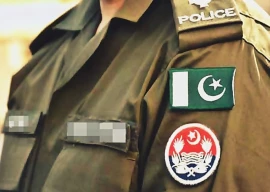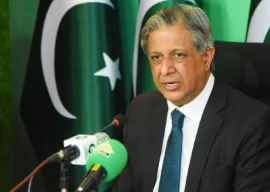
It was around 11:46pm when the silence on the sweltering weekend night was shattered by a deafening noise.
Death and destruction have now become part and parcel of life in Peshawar. But the positive thing is that terrorism has not broken the resilience of the residents of the provincial metropolis, it does not worry people much and they rush to the scene either out of curiosity or with the intention of helping those in distress. The same resilience was witnessed at Khyber Super Market, where a suicide bomber killed at least 39 people and injured over 100 others who had gathered at the site following the earlier blast.
Khyber Super Market is a small residential neighbourhood between Qayyum Stadium and armed forces flat on Main Bara Road, close to the office of the Khyber Agency Political Agent. There are numerous residential flats occupied by students and young singles in this area. The area is quite vibrant compared to Peshawar Cantonment, as it remains active till late night and young people can be seen sitting at the many juice shops and restaurants. It also houses the offices of several media organisations and many a journalists hailing from other parts of the province also live around here.
Following the earlier blast, everyone tried to rush to Lala Hujra Restaurant. However, they were told that it was a cylinder explosion and not serious. Some of those rushing to the scene turned around halfway, while the more curious ones gathered at the site. Meanwhile, police, rescue workers and the media had arrived following the earlier blast.
It was 11:55pm.
“When I got to the street, a policeman was unsuccessfully urging onlookers to leave the scene, warning that another blast could take place,” Hanifullah Khan, editor of a local comic magazine told The Express Tribune.
Hanif lives in the building which took the most damage in the attack. However, Hanif left the scene following the warning and went back to his flat. “I had just sat down when the second blast took place-it was more powerful than the previous one and destroyed everything in my apartment,” Hanif recalled.
Hanif’s two-room apartment was a mess, with shattered bits of his computer, airconditioners, furniture and walls strewn around. He was still thankful to have escaped from any injuries in the blast, noting how he came across many injured people on his way down the stairs.
Downstairs, the whole stretch of road was a stomach-turning mess with bodies all around and two electricity transformers engulfed by a raging fire. With the fire as his only source of light, Hanif found his way to relative safety. However, it was only the beginning, as wailing ambulance and police sirens and half-naked injured people were desperately running and crying for help.
For several minutes, the whole area was enveloped by confusion and a sense of disorientation. Fortunately, once people present at the scene realised the gravity of situation, they started helping the injured and volunteered their vehicles to take them to hospital. However, the damage was done, and as at least 39 people, most of them students, lost their lives, while over 100 others including journalists, policemen and students will bear permanent physical and emotional scars from this sad incident.
Almost everyone living in this area had a sleepless night and early on Sunday, the whole area presented a gloomy and deserted look. Almost all the shops and restaurants kept their shutters down and many residents packed their bags early in the morning and left for their hometowns.
More painful perhaps, is the fact that some people here have become so attuned to violence that they had already moved on with their lives. “Whatever happened last night has become a part of life for us, but why are all these shops and restaurants closed today?” Asim, a local resident, asked. “First the blast wracked our nerves and now in this scorching heat, we have to travel to find an open restaurant,” he added.
Instead of killing and dying in order to produce the being that we are not, we have to live and let live in order to create what we are.
-Albert Camus
Published in The Express Tribune, June 13th, 2011.





























1713853507-0/MalalaHilary-(2)1713853507-0-270x192.webp)








COMMENTS (7)
Comments are moderated and generally will be posted if they are on-topic and not abusive.
For more information, please see our Comments FAQ